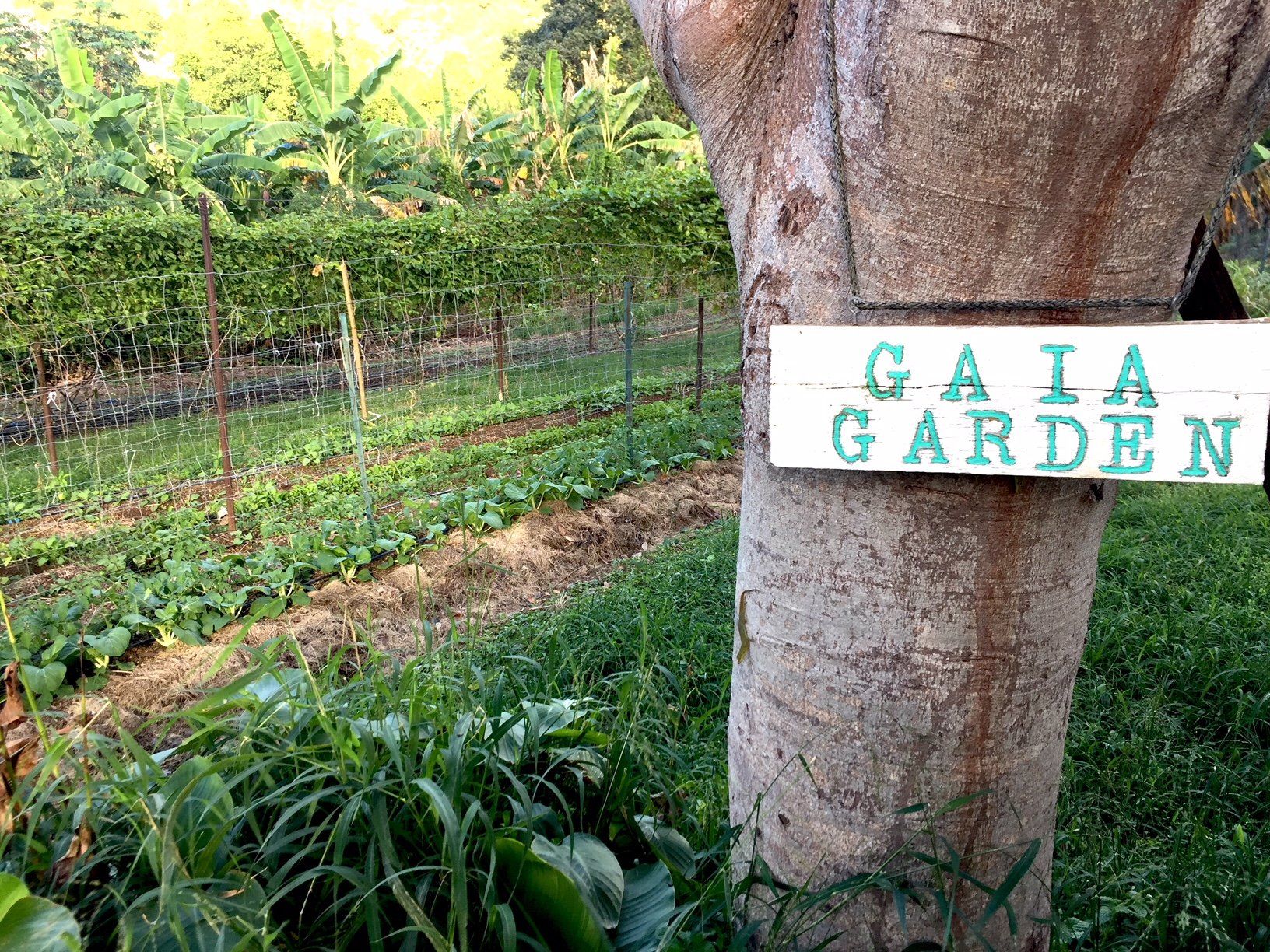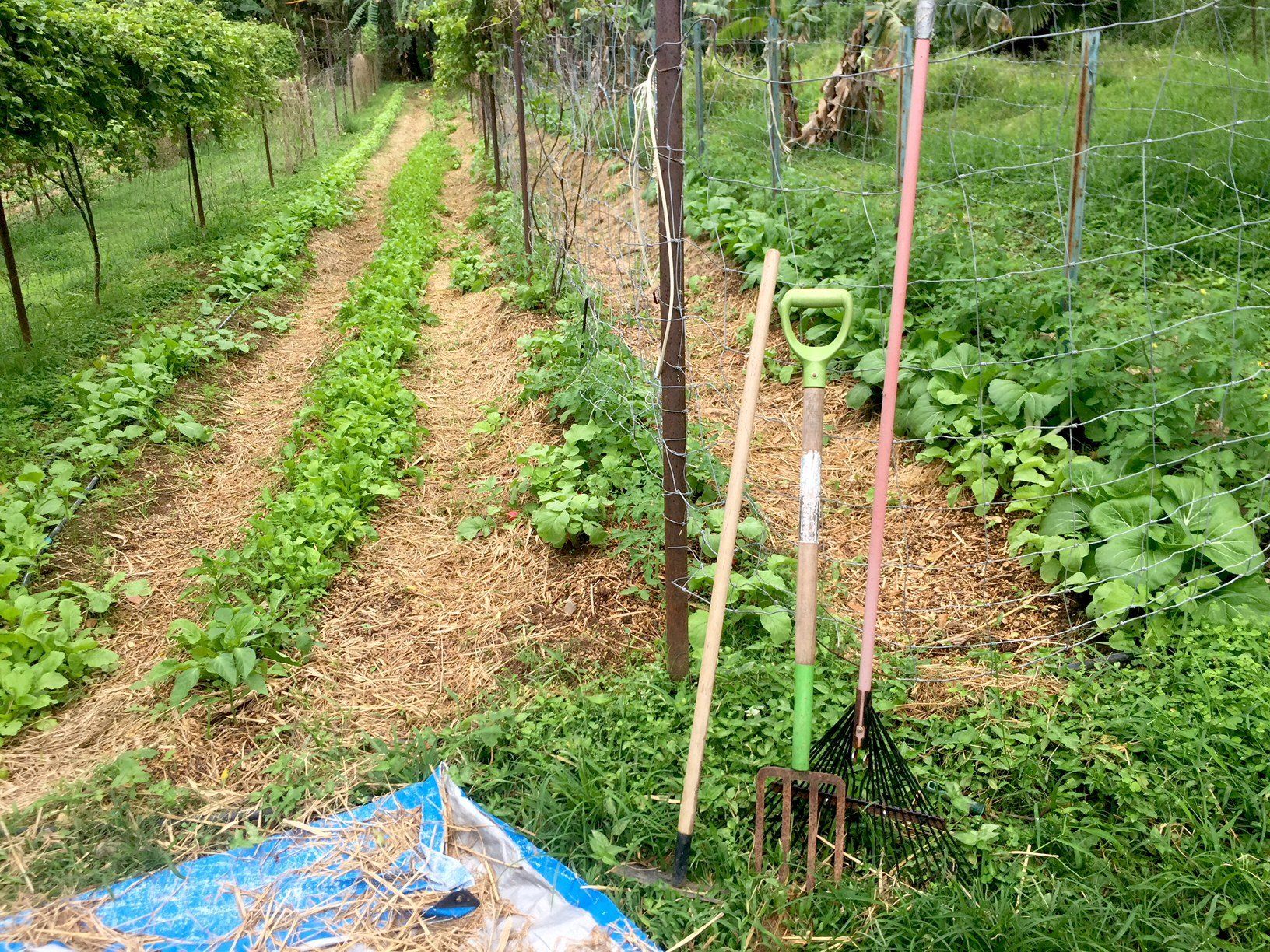[update: We are working on making more shares available as demand has skyrocketed. If you want to hear about new shares and other projects coming out as a response to the situation, please sign up for our foodie news alerts on the "CSA waiting list"]
Dear farm friends and members,
As we all witness the unfolding events surrounding COVID-19, Ridge to Reef Farm has upgraded our already rigorous set of safety procedures with our pre-packed fruit and vegetable boxed shares. This is to ensure that our Farm Share and Farm Stand members will still have access to fresh local organic food on a weekly basis in the safest way possible. After careful consideration and consultation with a local leader of the CDC (also one of our CSA members) tasked with management of the situation in the VI, we agree when he said, “Now is more important than ever to know where your food comes from and how it gets to you and for the farm to continue doing what you do.” So instead of planting less, we are planting more. He encouraged us to let our community know what procedures we have in place, which I have outlined for you below:
Fortunately, we always have a food safety program in place as a USDA certified organic farm. We abide by the National Organic Program and are inspected annually to ensure that we do not have co-mingling of organic with non-organic crops. Unlike most other commercial farms who ship produce to the territory, we are routinely asked to document and demonstrate our procedures in planting, harvesting, washing, packing, and delivery of crops.
First, the fruits and vegetables that we sell in our Farm Shares come from only one source: Ridge to Reef Farm. This includes plots and orchards at our main farm and our Little La Grange location.
Second, we always have a policy that workers cannot report to work if they are suspected to be sick. Now, we have upgrade this is to include if workers have been in contact with anyone who is sick, even if the worker does not show any symptoms. Fortunately, most of our workers live on the farm and have very little exposure to people of the farm and we have very limited visitation.
Third, we have a handwashing policy that anyone harvesting, washing, or packing crops must wash hands every time before any of these activities and after any breaks before returning to work. An additional safety measure we have implemented is hand washing every half hour while handling crops or packing materials.
Fourth, after harvest, our crops are routinely washed in a mild bleach solution in accordance with USDA organic standard practices put in place in our Organic Management Plan originally to stem any potential E.coli bacterial infections. We only use pure bleach with no additives using a pre-measured minimum amount to exceed the threshold for bacterial and virus survival.
Fifth, after crops are washed and cooled, we pack each unique produce box for delivery. Although research suggests that corona viruses cannot live after 24 hrs on a surface, such as a re-used produce boxes, we are playing it on the safe side and only using brand-new produce boxes for each order until further notice. During packing, in addition to our handwashing policy, we have added disposable medical gloves for use while handling crops during this process, which must be replaced after any works breaks and reminds out staff not to touch their face during this important step.
Sixth, once the boxes are labeled, packed, and closed, they are ready for delivery to our breezy pick-up locations without even having to open a door. These boxes will remain closed and are only handled by the two handle points on opposite sides of the box with clean and/or gloved hands. We advise our members to either: 1) Bring bags, open your own box and take your fresh, clean produce out and put into your bag, leaving your box at the pick-up, or 2) take the whole box and keep it. We will be later taking back boxes, so you do not need to throw them away. After all, the virus cannot last forever on surfaces and can be cleaned. But for the meantime and safety’s sake, please do not return your boxes once you take them from the pick-up location. At the end of the season (April 18th) we will accept all used boxes to be re-used for other purposes.
Seventh, the egg shares that we offer from Cox farm are always pre-washed in a bleach solution. We recommend re-washing your eggs at home and disposing of your cartons for the time being. The beer shares are filled in your own growler glass and filled with Leatherback’s own clean practices that include similar handwashing standards and are careful not to touch the rim. We thank our partners for helping us maintain these standards of cleanliness for our customers.
Finally, it is important to remember that supporting local food production is good for not only our farm to survive through this time but for you as well. Hippocrates, often labeled as the father of modern medicine, famously and rightfully said, “Let thy food be thy medicine.” Indeed, the crops that we have lovingly planted, harvested, washed, packed, and sent to you in these boxes are powerful nutrient-dense foods that speak to your bodies through flavor and texture on a molecular level. Clinical research has shown that those green papayas increase platelets in your bloodstream to ward off viral infections with no side effects. The weekly turmeric share might have felt excessive, until you learn that it is another very powerful destroyer of viruses trying to inhabit your body. If you have too much, share it with a friend. In fact, if you want more to become your neighborhood medicine woman, you can “swap” in as much as our inventory will permit. All the citrus fruits we offer are packed with vitamin C, a well-known immune booster (not to mention effective scurvy deterrent). All these vegetables, herbs, and fruits are full of nutrients to help you stay healthy, calm, and capable during some very uncertain times. We are honored to continue serving you and the rest our community as we all do our part to promote health in our island community both in the short and long term.
For good health,
Nate Olive, Ph.D.
Director, Ridge to Reef Farm



